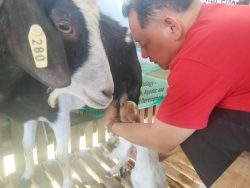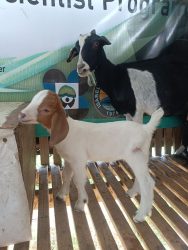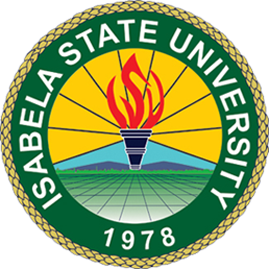
News Feature | Livestock sector is one of the priority fields of Isabela State University’s Research & Extension thrust. Through the years, the university continuously provides new options to facilitate the upgrading of stocks under the supervision of Cagayan Valley Small Ruminants Research Center using artificial breeding technologies.
Since 2009, the center started to develop protocols on artificial insemination (AI) for small ruminant. With AI, the superiority of the male breeder is maximized, allowing faster upgrading of stocks.
In 2017, with the completion of the laboratory and other support facilities, the university, under the new leadership of Dr. Ricmar P. Aquino proposed to explore the possibility of embryo transfer technology application. Embryo transfer or ET is a technique where embryos are collected from a superior donor female and transferred to a recipient or surrogate dam to carry the pregnancy. With the technology, purebred animals can be delivered using small number of superior breeders.
The ET activity at ISU-CVSRRC is a project of DOST Balik Scientist Program (BSP) under DOST-PCAARRD support. Earlier this year, Dr. Miguel Mervin Pajate, a veterinarian and ET expert who is currently residing in Dubbo, Australia was tapped to serve as the expert to train ISU researchers on the technology.

Led by Dr. Jonathan N. Nayga, the team was trained on selection and preparation of donor and recipient does, superovulation of embryo donors and synchronization of recipient does, and embryo collection, grading, storage, and thawing.
On January 27, 2023, an upgraded doe became a recipient of an embryo produced from purebred Boer buck and 75% upgraded doe. Known as surrogate doe, the animal is native goat raised in one of the goat’s farms in Echague, Isabela. After five months, the surrogate doe delivered a male kid that weighs 1.5 kg.
This new development demonstrated the feasibility of ET application using the facilities of the university. At present, farms under CVSRRC’s supervision are organized to test the local protocol developed from the engagement of the BSP Expert.




